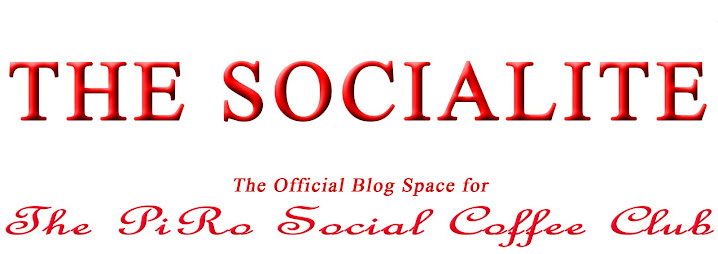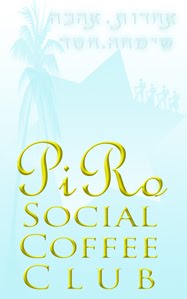Living with a 5,770 year old tradition may not always seem contemporary. However, it is surprising and even shocking how often the ancient tradition becomes profoundly relevant to the current moment.
Passover, based on the Book of Exodus, tells a revealing story of human enslavement. It starts from a premise that is challenging to understand. How could the People of Israel which was clearly credited for having saved ancient Egypt from vast impoverishment, massive starvation and possible total annihilation, be suddenly transformed from a praised people into an enslaved nation?
The answer is given in one short biblical statement found in the opening verses of the Exodus text. “There arose a new king in Egypt who no longer knew Joseph”. Joseph, the leader of the Jewish People, who lifted Egypt to its height of power and “world domination” was conveniently forgotten, dismissed and erased. Pharaoh thought that by removing or disabling the “Jewish obstacle” the doors would be wide open for him to become ultimate power/god of the world.
Pharaoh yearned to attain the popularity of the masses and his association with the Israelite nation was no longer in his best interests. His defense against the Jews was to gradually destroy their credibility by fostering a series of believable demeaning fabricated stories. This step was followed by placing further restrictions upon the Israelites and demanding additional concessions.
Pharaoh’s powerful charisma and eloquence were able to convince not only the Egyptian populace but even an extremely high number of Jews that the Israelite enslavement was a benefit to all. His orations were so successful that most Jews when given the choice of freedom or enslavement opted to remain as slaves.
Pharaoh understood that dictatorial success comes by thinking for others, telling others what is good for them, teaching others that they have no right or power to reach for their own destiny and to determine their own future.
Confusion set in and many people couldn’t tell that there was a moral difference between Moses and Pharaoh. In many minds, Egypt the society that praised “death” was held superior to Israel, a society that fostered “life”. This extreme confusion led to the famous “Ninth Plague”, the Plague of Darkness. It was darkness that filled the world with moral confusion and it was Israel that was tasked to lead the world out of “darkness and death” into a world of “light and life”.
As it turned out, Pharaoh’s aim to debase, defame and wipe the Jewish people out of existence only backfired. Instead of ultimately destroying the Jews, his own destruction came forth along with the demise of ancient Egypt.
Passover is to celebrate that enslavement was reversed and liberation emerged with a victory of life over death and good over evil.
But then, there is a chilling occurrence that can follow the victory of liberation.
The post liberation crisis is an awkward development which works to dismember the victory of liberation and empower the exact forces that threaten liberty’s future. The challenge of living in freedom is that it is easy to forget and to lose an understanding of just how dangerous and pernicious enslavement is. The comfort of freedom can seep to a level where the core values of liberty can become totally diminished and even dismissed.
The Exodus narrative begins with enslavement and ends with liberation. Our job is to always remember the great value of liberty. It is too easy to become complacent and then suddenly discover that enslavement is gaining the upper hand.
The text reads that in every generation there arises a force that sets forth to destroy us. These words are a warning that one must never take freedom for granted. It must be understood that liberty is continually under attack and that moral confusion threatens to fill the world. Moral confusion is when evil is praised, given a “pass”, excused and rationalized and in contrast, good is heavily criticized and dramatically scorned for a possible pin point of imperfection.
This year, the Seder’s ending phrase, “Next Year In Jerusalem” will perhaps have more meaning than it has had for the past number of decades. It appears that “liberation” and “Jerusalem” have an eternal connection. Both are not to be taken lightly because both can easily be taken away and destroyed. The loss of either means dire consequences to the entire world.
The relevance of the Passover Seder has the ability to startle one who was expecting to read only an ancient story. As one commemorates the leaving of Egypt and the victory over forced enslavement, one may suddenly realize that the course of history doesn’t always advance. At times, there can be gross regression and a revisiting of the same pain filled issues of moral confusion. It is up to us to make sure that liberty wins and that enslavement is not allowed to score a repeated victory.
___________________________________________________________________
Daryl Temkin, Ph.D. is the founder of the Israel Institute for the Advancement of Alternative Energy.
Passover, based on the Book of Exodus, tells a revealing story of human enslavement. It starts from a premise that is challenging to understand. How could the People of Israel which was clearly credited for having saved ancient Egypt from vast impoverishment, massive starvation and possible total annihilation, be suddenly transformed from a praised people into an enslaved nation?
The answer is given in one short biblical statement found in the opening verses of the Exodus text. “There arose a new king in Egypt who no longer knew Joseph”. Joseph, the leader of the Jewish People, who lifted Egypt to its height of power and “world domination” was conveniently forgotten, dismissed and erased. Pharaoh thought that by removing or disabling the “Jewish obstacle” the doors would be wide open for him to become ultimate power/god of the world.
Pharaoh yearned to attain the popularity of the masses and his association with the Israelite nation was no longer in his best interests. His defense against the Jews was to gradually destroy their credibility by fostering a series of believable demeaning fabricated stories. This step was followed by placing further restrictions upon the Israelites and demanding additional concessions.
Pharaoh’s powerful charisma and eloquence were able to convince not only the Egyptian populace but even an extremely high number of Jews that the Israelite enslavement was a benefit to all. His orations were so successful that most Jews when given the choice of freedom or enslavement opted to remain as slaves.
Pharaoh understood that dictatorial success comes by thinking for others, telling others what is good for them, teaching others that they have no right or power to reach for their own destiny and to determine their own future.
Confusion set in and many people couldn’t tell that there was a moral difference between Moses and Pharaoh. In many minds, Egypt the society that praised “death” was held superior to Israel, a society that fostered “life”. This extreme confusion led to the famous “Ninth Plague”, the Plague of Darkness. It was darkness that filled the world with moral confusion and it was Israel that was tasked to lead the world out of “darkness and death” into a world of “light and life”.
As it turned out, Pharaoh’s aim to debase, defame and wipe the Jewish people out of existence only backfired. Instead of ultimately destroying the Jews, his own destruction came forth along with the demise of ancient Egypt.
Passover is to celebrate that enslavement was reversed and liberation emerged with a victory of life over death and good over evil.
But then, there is a chilling occurrence that can follow the victory of liberation.
The post liberation crisis is an awkward development which works to dismember the victory of liberation and empower the exact forces that threaten liberty’s future. The challenge of living in freedom is that it is easy to forget and to lose an understanding of just how dangerous and pernicious enslavement is. The comfort of freedom can seep to a level where the core values of liberty can become totally diminished and even dismissed.
The Exodus narrative begins with enslavement and ends with liberation. Our job is to always remember the great value of liberty. It is too easy to become complacent and then suddenly discover that enslavement is gaining the upper hand.
The text reads that in every generation there arises a force that sets forth to destroy us. These words are a warning that one must never take freedom for granted. It must be understood that liberty is continually under attack and that moral confusion threatens to fill the world. Moral confusion is when evil is praised, given a “pass”, excused and rationalized and in contrast, good is heavily criticized and dramatically scorned for a possible pin point of imperfection.
This year, the Seder’s ending phrase, “Next Year In Jerusalem” will perhaps have more meaning than it has had for the past number of decades. It appears that “liberation” and “Jerusalem” have an eternal connection. Both are not to be taken lightly because both can easily be taken away and destroyed. The loss of either means dire consequences to the entire world.
The relevance of the Passover Seder has the ability to startle one who was expecting to read only an ancient story. As one commemorates the leaving of Egypt and the victory over forced enslavement, one may suddenly realize that the course of history doesn’t always advance. At times, there can be gross regression and a revisiting of the same pain filled issues of moral confusion. It is up to us to make sure that liberty wins and that enslavement is not allowed to score a repeated victory.
___________________________________________________________________
Daryl Temkin, Ph.D. is the founder of the Israel Institute for the Advancement of Alternative Energy.













No comments:
Post a Comment